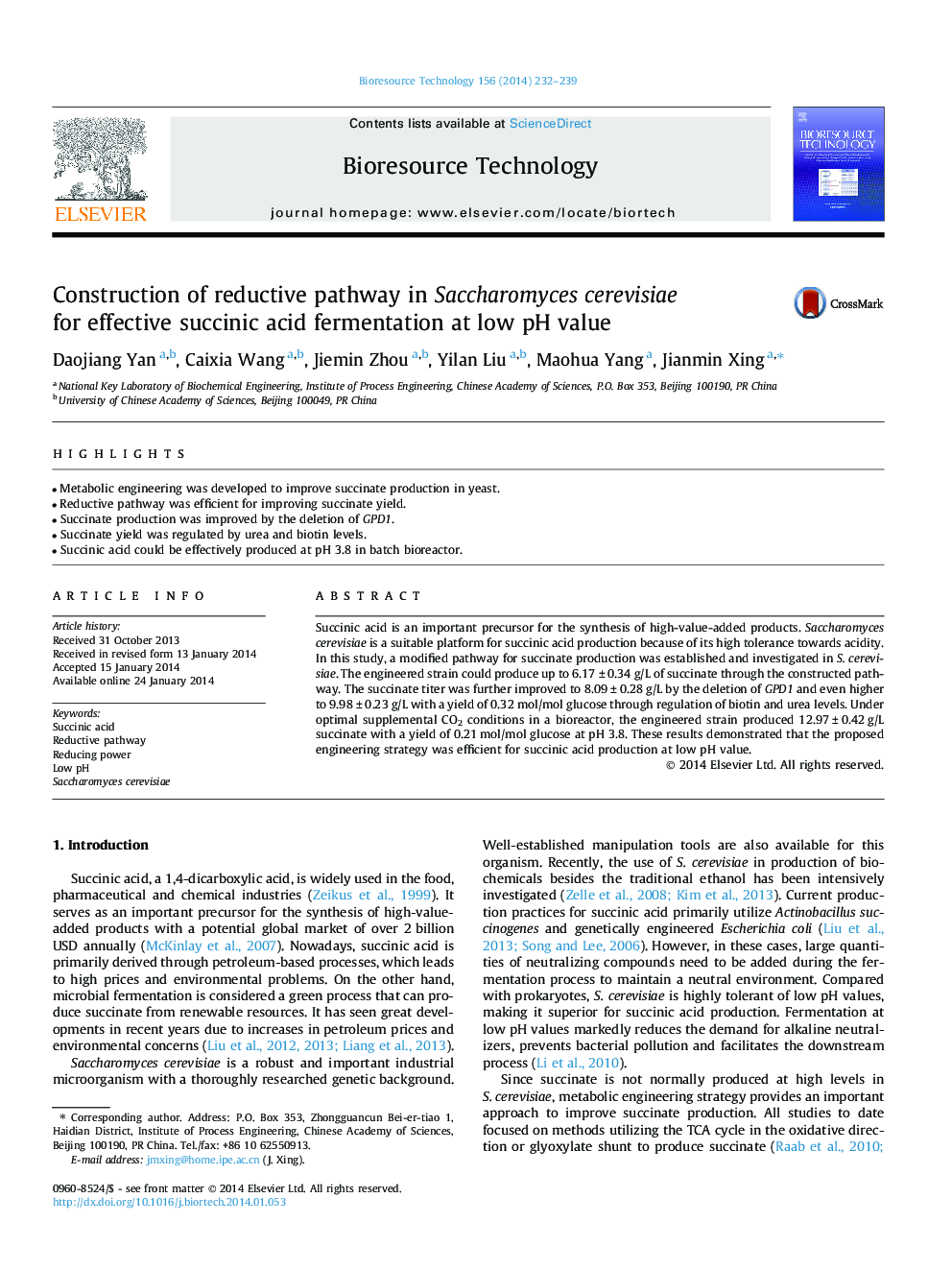| Article ID | Journal | Published Year | Pages | File Type |
|---|---|---|---|---|
| 7078964 | Bioresource Technology | 2014 | 8 Pages |
Abstract
Succinic acid is an important precursor for the synthesis of high-value-added products. Saccharomyces cerevisiae is a suitable platform for succinic acid production because of its high tolerance towards acidity. In this study, a modified pathway for succinate production was established and investigated in S. cerevisiae. The engineered strain could produce up to 6.17 ± 0.34 g/L of succinate through the constructed pathway. The succinate titer was further improved to 8.09 ± 0.28 g/L by the deletion of GPD1 and even higher to 9.98 ± 0.23 g/L with a yield of 0.32 mol/mol glucose through regulation of biotin and urea levels. Under optimal supplemental CO2 conditions in a bioreactor, the engineered strain produced 12.97 ± 0.42 g/L succinate with a yield of 0.21 mol/mol glucose at pH 3.8. These results demonstrated that the proposed engineering strategy was efficient for succinic acid production at low pH value.
Related Topics
Physical Sciences and Engineering
Chemical Engineering
Process Chemistry and Technology
Authors
Daojiang Yan, Caixia Wang, Jiemin Zhou, Yilan Liu, Maohua Yang, Jianmin Xing,
